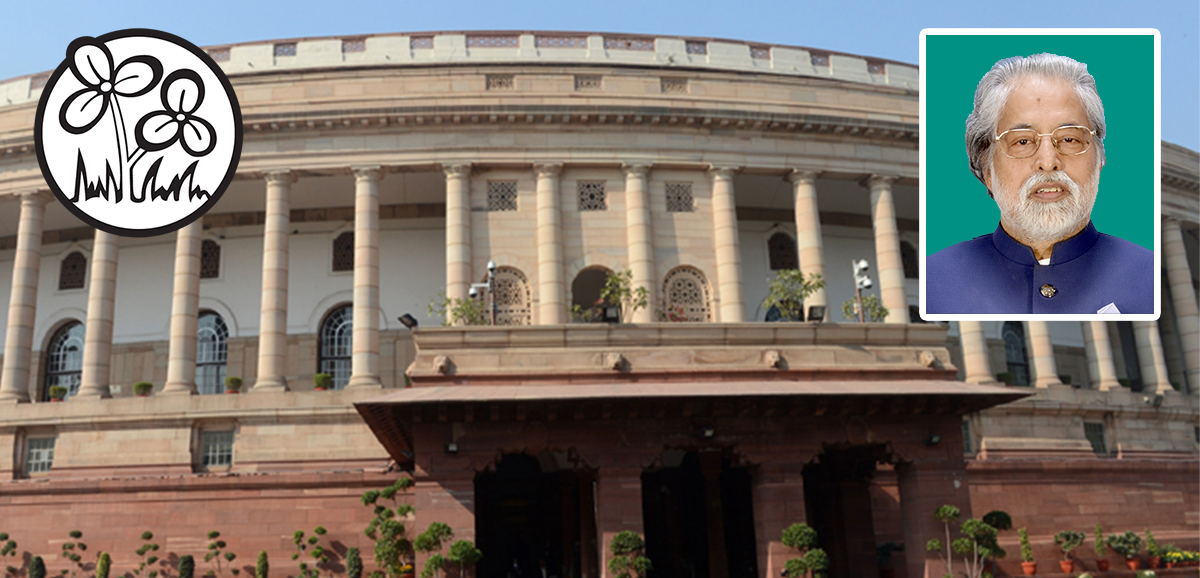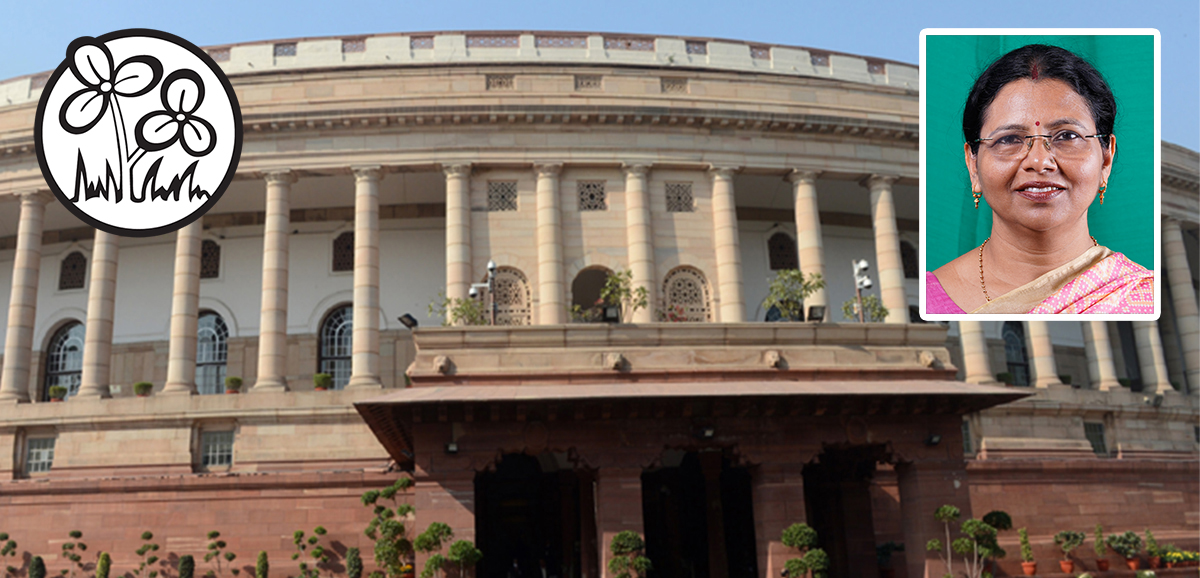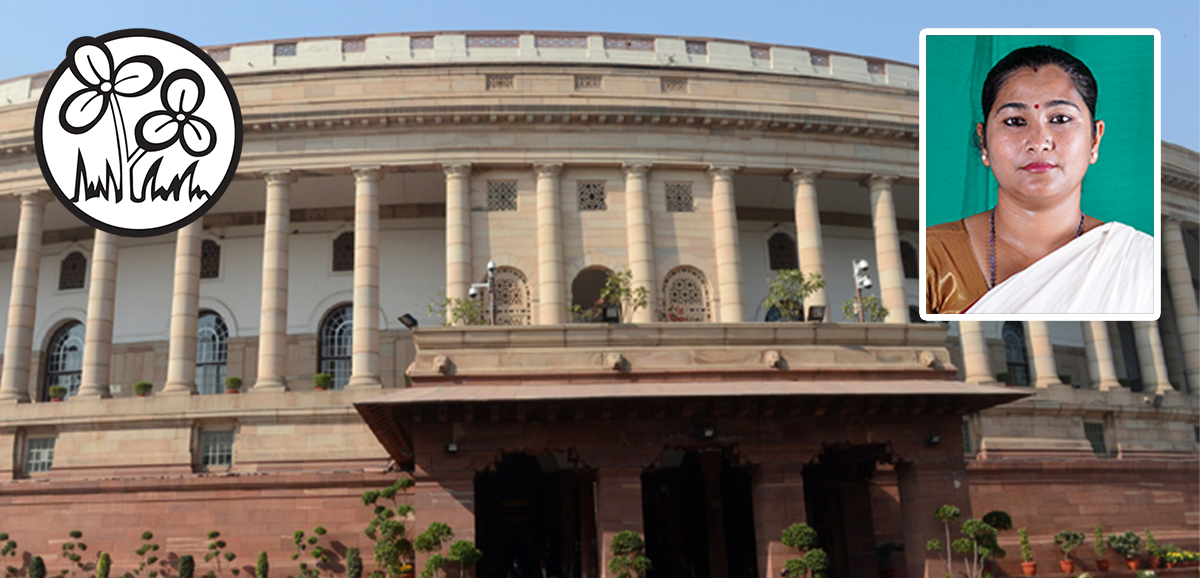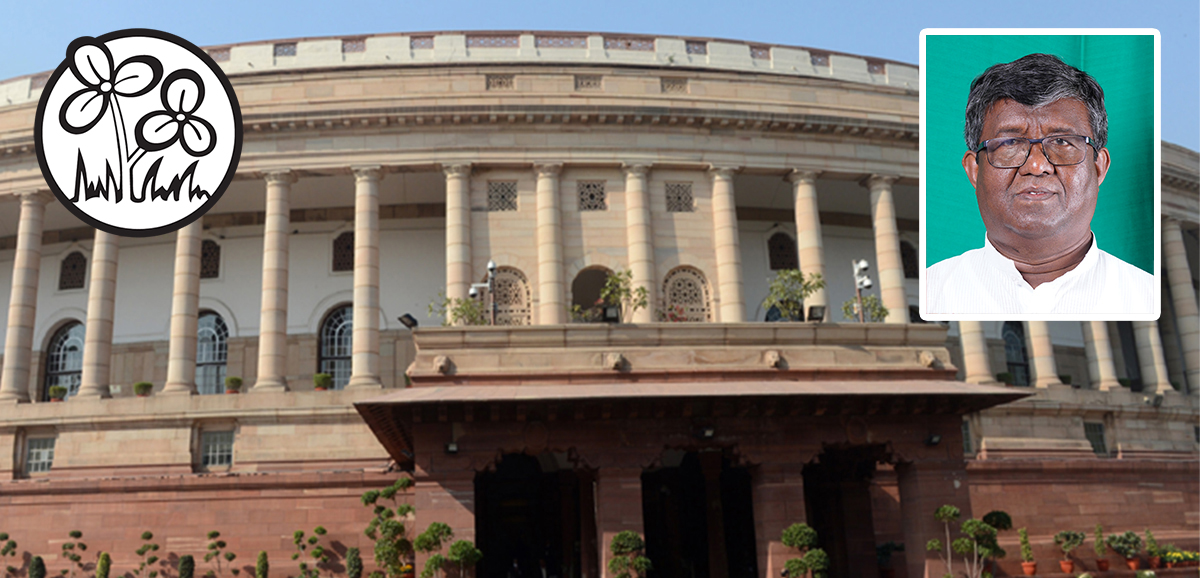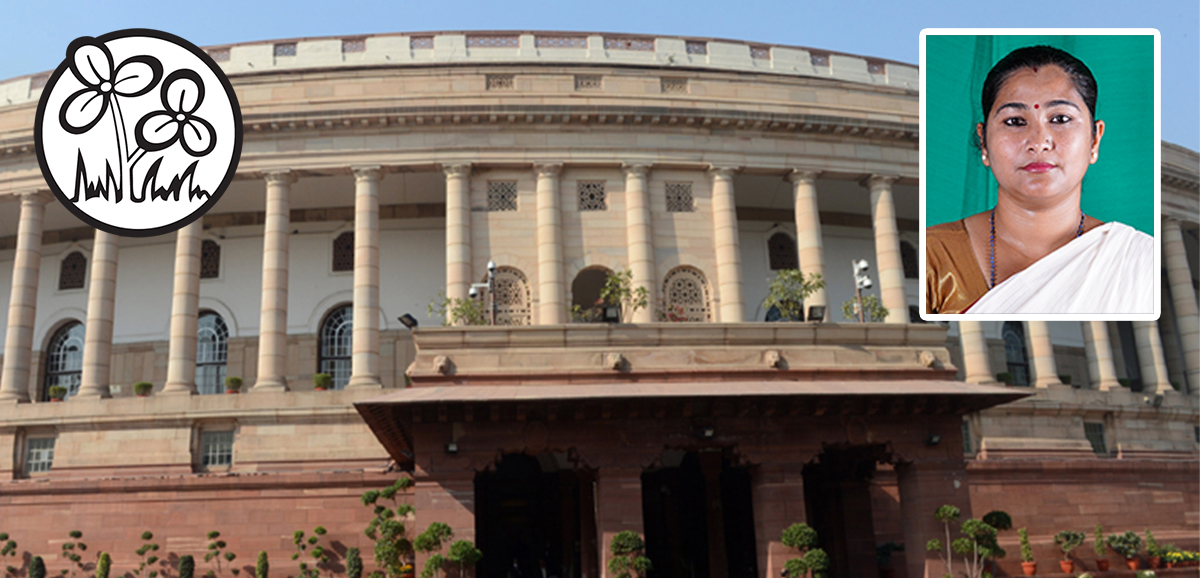Sir, thank you for giving me this opportunity. There are 23.5 per cent Scheduled Castes and nearly 6 per cent Scheduled Tribes in my home State of West Bengal. According to 2011 Census reports, the STs literacy rate in India, in males it was 68 per cent and in females, it was 49 per cent respectively. The West Bengal STs literacy rate was 74 per cent and 43 per cent, respectively, for males and females. Under the able-leadership of our Chief Minister, Ms. Mamata Banerjee, we successfully run the SC/ST pension schemes namely, Joy Johar, Tapasili Bandhu, Joy Bangla, all these are there to take care of the elderly communities amongst the SCs and STs. We know that, actually, they are the most marginalized sections of the society and, especially, the tribals, they are very poor, marginalized, socially also, they are downtrodden. So, the Bengal Government has taken into account all these things. The Government, especially, looking into plight, at times, of elderly people of these marginalized sections and has provided a monthly pension of Rs. 1,000 to give them a cushion of comfortability, financially and also socially. So, their social security is also taken care of, and in this way, we have tried as much as we could do to stand beside these marginalized
communities. Further, we have also established various lending programmes to help grow entrepreneurship in these communities. However, matters at the national level require a serious inquiry. As per the 2011 Census, 8.6 per cent of the country’s total population is Scheduled Tribes. Of the total primary school students population, you will see that the dropout among the tribal students is maximum. That is most unfortunate. In the working population, if you see the representation, it is only 6 per cent of those employed in Government offices who come from this Scheduled Tribe section. Again, it is not pro-rata. In spite of the constitutional mandates and the safeguards that have been provided, we have failed to deliver on the promises and we have failed to accommodate our ST population as was mandated by the Constitution. These things need to be looked into seriously. According to the Ministry’s Gap Analysis Dashboard of villages where the ST population is greater than 25 per cent, you will be astonished to know that only 9 per cent of these villages have banks, only 24 per cent of these villages have a healthcare centre and even more alarming, only 50 per cent have tap water and drainage facilities. As recently as in February, 2022, there was a very alarming situation in a particular case of a tribal community in Jammu’s Doda district. We are spending so much on works in Jammu & Kashmir. We are thumping our own backs of what we have done in Kashmir and how we keep on lauding ourselves but what have we done? Whereas if you see the STs, they are larger in figures than the SCs there. They are nearly 10 per cent. In one particular case, we found that a tribal community in Jammu’s Doda district was compelled to spend their own savings in order to gain access to potable water in the village. There is no drinking water. They spend their own savings and get water. The people of ST community in Jammu, mainly the Bakkarwals and such people, are the most marginalized people in the whole country. So they had to spend their own savings to arrange water. Even in the overwhelmingly advertised vaccination drive, a majority of the bottom 50 districts in terms of vaccine coverage have sizable tribal population, that is, 72 per cent of this population is from rural, tribal majority districts. Sir, real work has happened in Bengal and some other States. In the spirit of federalism, we must take some of these ideas and implement them further for greater cause of the nation. This Government should shed its arrogance and take a leaf out of book of Ms. Mamata Banerjee, the Chief Minister of Bengal, who has done well, as I have said. In this year’s Budget, the Ministry had proposed an amount of Rs.13,208 crores in the Budgetary Estimates for 2022-23 under various Centrally-Sponsored Schemes and Central Sector Schemes, out of which the Ministry of Finance has provided only an amount of Rs.8,406 crores, that is, there is a 36 per cent slash. In the years 2020-21 and 2021-22, the Ministry of Tribal Affairs had an allocation of Rs.7,355 plus crores and Rs.7,084 crore respectively. However, the allocation was reduced to Rs.5,472 crores in 2020-21 and Rs.6,126 crores in 2021-22 at the Revised Estimate stage. What is most shocking is that the Ministry of Tribal Affairs could not even fully spend the Revised Estimate allocation in 2020-21 and have been able to utilize just Rs.4,070 crores in 2021-22 up to 15th February, 2022, which is most alarming. Under-utilization of funds is a serious problem and we need to look into this. The under-utilization of funds is also reflected in two Special Area Programmes administered by the Ministry. Only half of the total allocated Special Central Assistance to Tribal Sub-Scheme was utilized in 2020-21. For the year 2021-22, the allocated amount was Rs. 1,350 crores, of which just a paltry sum of only Rs.4 crore had been utilized till January. It is unimaginable. Why this massive shortfall? On top of this, in grants-in-aid, out of Rs.1,350 crores of grants-in-aid for 2021-22, only Rs.364 crores have been utilized so far. Again, it is very alarming. The Standing Committee on Social Justice and Empowerment too observed and I quote “The Ministry of Tribal Affairs should avoid rush of expenditure at the fag end of the financial year and make sincere efforts so that funds are timely spent and the targeted people get the benefits.” The Standing Committee on Social Justice and Empowerment in its 30th Report has pointed out the stagnation in the scholarship programmes offered to ST students. Under Pre-Matric Scholarship Scheme, the beneficiaries of the funds released in some of the States such as Arunachal Pradesh, Jammu and Kashmir, Maharashtra, Meghalaya, Puducherry, Telangana and Uttar Pradesh are alarmingly shown as nil. Of course, I do not know and the Minister will clarify this. Sir, 750 national fellowships are provided to the ST students each year for pursuing higher studies. During the last five years, only 45 students have been awarded the National Overseas Scholarship. Even 20 scholarships are not being fully utilized. The Standing Committee also found that overseas scholarship of 55 tribal students lapsed in the last five years due to the irresponsible approach of the Government. Out of thesanctioned amount of Rs.5 crore for overseas scholarship, most unfortunately, only little over Rs.2 crore has been spent for the year 2021-22. The Committee noted that for most of these scholarships, the number of beneficiaries and funds allocated has not increased over the year. The recommendations that the Committee has put is, I quote: “The annual increase in tribal population should be taken into consideration at the time of budgetary allocation and it should also be ensured that the number of beneficiaries increase every year.” The Parliament must note with urgency that the National Commission on Scheduled Tribes is short staffed and that the Reports of the Commission since 2018 are still under process in the Ministry of Tribal Affairs and have not been presented to the Parliament till date. In light of all these facts and figures, I urge the House to unite for a sincere discussion focussed on the welfare of the Scheduled Tribes. I would like to end by saying, in this 75th Year of Independence, that any progress, that does not include all its citizens, is not a progress because at this point in time, in the global scenario, whenever we talk of anything, we talk of inclusiveness and especially, in the Indian context, if you really want to surge ahead, move ahead, if you are not taking on board all the marginalized sections, this progress will only be a limited progress and ultimately, this will not allow you to achieve the goals you are dreaming of by saying, ‘Sabka Saath, Sabka Vikas and Sabka Vishwas’. Sir, this should not merely remain as a statement of the Government. It should reflect on the ground. It should be palpable. We should be able to feel it. The marginalized communities should be able to have the advantage of it and we should be more careful that at any future point in time, the history does not denote this as a mere jumla. Thank you, Sir.
